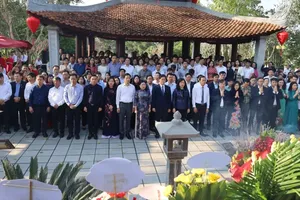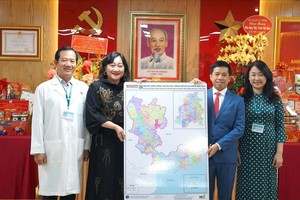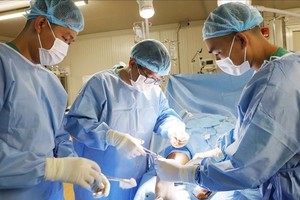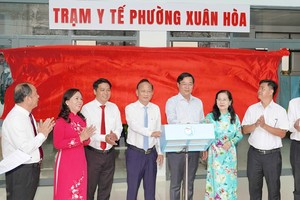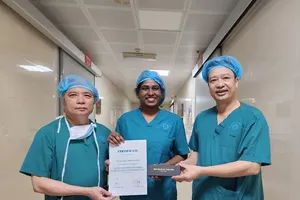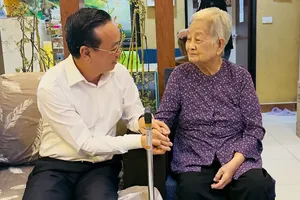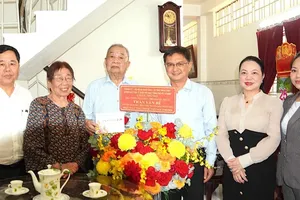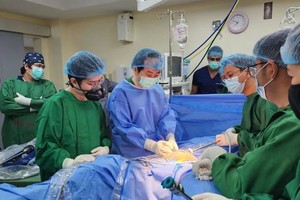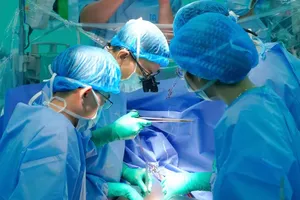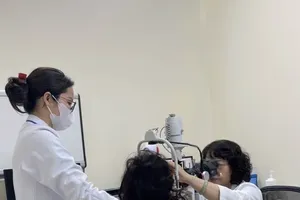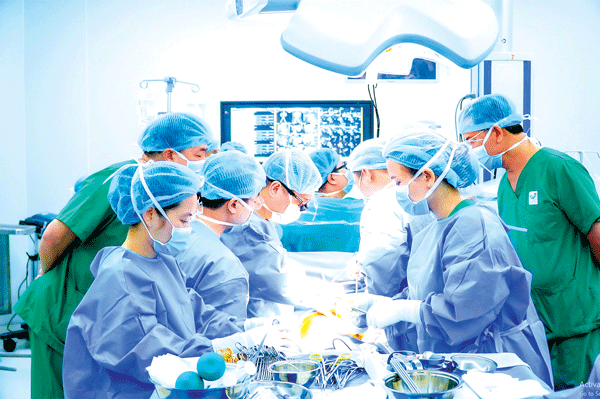A 35-year-old female patient, a resident in HCMC, started to feel sick on September 18 while traveling in Dubai, with symptoms of fever, fatigue, chills, muscle pain, headache, cough, and the appearance of red, itchy spots on arms, body, and face. The patient traveled to Dubai in July 2022 and returned to Vietnam on September 22.
After returning to Vietnam, the patient went to Tu Du Hospital for a health check on September 23 and was suspected of contracting an infectious disease, so she was transferred to HCMC Dermatology Hospital. The doctor examined and suspected that she had been infected with monkeypox, so she was isolated to take samples for diagnostic testing (Real-time PCR test at the Hospital for Tropical Diseases and the Pasteur Institute in HCMC).
On September 25, the patient had initial results positive for monkeypox and was transferred to the Hospital for Tropical Diseases in HCMC for further isolation and treatment and was taken samples for genome sequencing at the Clinical Research Unit of Oxford University in cooperation with the Hospital for Tropical Diseases in HCMC.
After receiving information that the patient was suspected of having monkeypox, the MoH asked the People's Committee of HCMC to direct specialized agencies to continue to take disease prevention measures, urgently conduct the genome sequencing test, and continue the epidemiological investigation, outbreak handling, isolation, and treatment of patients following the guidance of the MoH.
At the same time, the MoH asked the People's Committees of the provinces and municipalities to strengthen measures to prevent and control the monkeypox epidemic.
Currently, the patient is in stable health, with no fever, and is being isolated and treated at the Hospital for Tropical Diseases in HCMC following the guidance of the MoH.
With the information extracted through the epidemiological investigation and the Real-time PCR test and genome sequencing results, the MoH determined that this was a monkeypox case transmitted from abroad. All people in close contact with the patient in Vietnam are monitored and supervised according to regulations, and no suspected cases have been detected.
To actively prevent the epidemic, the MoH requested the People's Committees of provinces and cities to actively develop, complete, and deploy a plan to respond to the monkeypox epidemic in their localities; step up the strict disease surveillance at border gates, medical examination and treatment facilities, and in the community for early detection and timely prevention of the epidemic.
Provinces and cities should be ready to collect, treat, assign treatment channels and isolate patients, perform well the distribution and infection control at medical examination and treatment facilities, and promote information to people about disease prevention measures at border gates and in the community.
The MoH will strengthen inspection, supervision, and direction of epidemic prevention and control in localities; continue to coordinate with the World Health Organization, the US CDC, and the National IHR focal points of countries to review and update information on pathogens, testing equipment, and biological products for the diagnosis, and update communication materials.
The MoH will continue to update guidelines and organize training for health workers at all levels on disease surveillance, publicize risks, preventive measures, ways to care for and treat monkeypox patients and prevent infection control in healthcare facilities.
